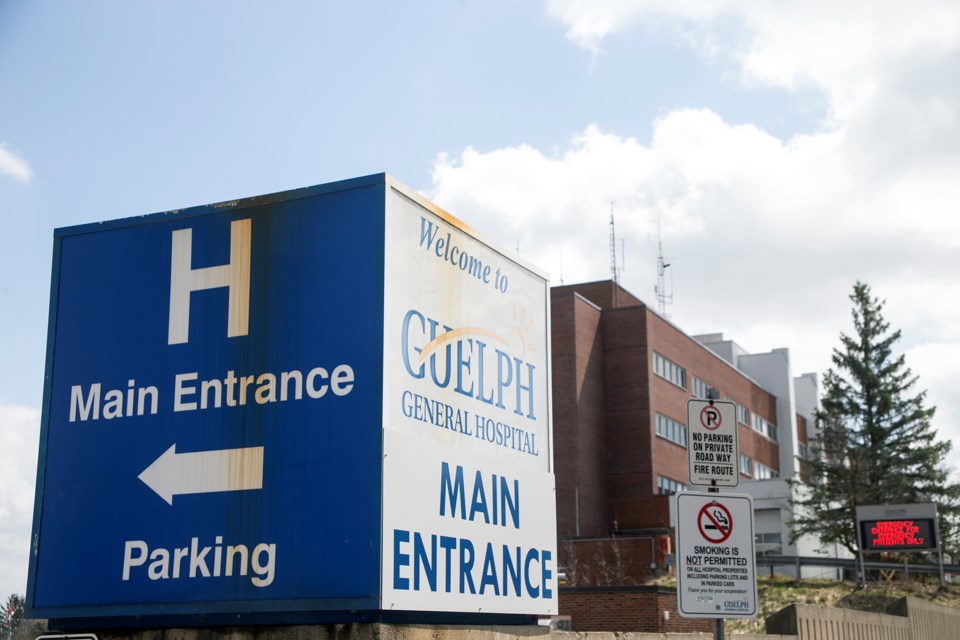A report from Ontario's patient ombudsman is revealing data that seems to be a sign of the times.
Over 3,300 complaints were filed in the 2021-22 year, which keeping it on par with numbers seen in 2020-21.
But numbers are much higher than the nearly 2,400 complaints on average the three years before the pandemic.
While the report covers the entire health care system – including long-term care homes and community care facilities – 61 per cent of the complaints in the latest report were at hospitals.
A Guelph hospital spokesperson was not able to release local data, but added there was an increase in the number of complaints regarding wait times in the emergency department, as well as visiting restrictions, off load times and surgical wait times.
Many complaints relate to access to care issues and a lack of adequate staffing.
There was also a 43 per cent increase in complaints from those saying they were treated with a lack of sensitivity and caring.
"If I was to think about the complaints in the system, a lot of it had to do with the outcome of the pressures," said Melissa Skinner, the VP of patient services at Guelph General Hospital. "The pressures are from the lack of human resources and capacity in the system."
Speaking to Guelph specifically, Skinner said the hospital just isn't the right size for the community.
"(It) just doesn't have enough physical beds, physical rooms, physical stretchers to address the needs of a community that's growing as fast as it is."
And with the older population the fastest growing, a population that tends to go to hospital more, and less space and staff to provide the care, she said it's led to a perfect storm where patients aren't getting the experience they're hoping for.
This includes longer wait times in the emergency room. And for some, getting treatment in a hallway.
Before the pandemic, Skinner said they could move a patient through the system quicker and get them started on home care.
Now, that wait is longer and it's taking more time to get people home and have services put in.
"The whole system is designed so people are waiting so much longer than they did before, and I think that contributes to some of the dissatisfaction as well," she said.
The provincial ombudsman data does not have a region-by-region breakdown, but does note those in the GTA and northern Ontario were most likely to file a complaint.
As for the Guelph complaints, Skinner said "these complaints are not unexpected with the pressures within the health system related to surgical back log, capacity pressures within the hospital, and the lingering impacts of COVID-19."
The hospital has its own page for anyone looking to express comments or concerns.
Skinner said resources in the health care sector are scarce, and something that started before the pandemic.
But noting the problem is one thing. It's another to provide a solution.
Skinner said the issues have gotten officials to look at how health care is provided, and who in the sector is best suited to provide the care a patient needs.
She pointed to some "creative strategies" to help fill the gaps, including the introduction of personal support workers to the hospital to take care of patient needs they could deal with, freeing up nurses to deal with other patients.
A positive take away from the report is while there were 3,306 complaints filed in 2021-22, the ombudsman said 3,291 complaints were resolved in the same time frame, including complaints from previous years.
But there's still a long way to go, especially when it comes to dealing with the labour shortage.
Ontario's Financial Accountability Office said the province is projected to be short 33,000 nurses and personal support workers in the next five years.
"We try to reassure our patients in opportunities like this to tell (them) what we are trying to do is really helpful," Skinner said. "We can't find our nurses or physicians or laboratory technologists quickly, but what we can do is try to make the best of what we do have."
There's also the ripple effect of trying to clear the backlog of non-urgent surgeries.
She said they're proud of the work they're doing to move through that list, but it's a task she admitted is not easily fixable in "just a year or two."
